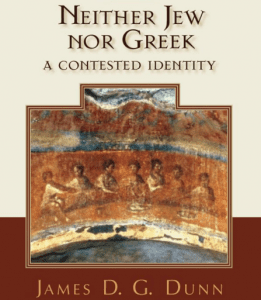 If you are listening to the theological discussions today the magical term is no longer “deity” but “identity.” So I’m happy to see Mike Bird, in his Evangelical Theology, open up the chp that talks about the deity of Christ (the chp title is “The Story of Jesus and the Identity of God”), with these words:
If you are listening to the theological discussions today the magical term is no longer “deity” but “identity.” So I’m happy to see Mike Bird, in his Evangelical Theology, open up the chp that talks about the deity of Christ (the chp title is “The Story of Jesus and the Identity of God”), with these words:
The gospel preaching in the NT nowhere makes explicit that Jesus is a divine person, coequal with the Father in being from all eternity, sharing in one divine substance.
OK, that’s a rather bold statement but once you read it you have to say, “Of course, those terms aren’t used.” He goes on:
What the gospel does make clear is that the epochal saving action of God is executed in his Son in such an intense way that the identity of God must now be (re)defined in light of the mission of the messianic Son. The gospel is a story about God, and the story within the story is Jesus the Messiah. In our God-storied gospel, Jesus is not a human being who was commissioned to speak and act on behalf of God; rather, Jesus speaks and acts from a viewpoint that represents God from the inside (460).
This says a whole lot, I have to admit, and it changes the discussion from “Is Jesus God?” to “How is Jesus God?” Bird then sketches the Nicene-Constantinopolitan Creed and the Reformation discussions, but pulls us back to two NT facts: Jesus is Lord and the identification of this Lord with Israel’s God. The fact of the incarnation, not the content, is the presupposition of NT theology. I do think he could have focused more on this “identity” issue, but I see this chp as a step forward in our deity-of-Christ discussions. It’s Reformed orthodoxy revised by Bauckham and NT Wright.
His topics include the pre-existent Son, Jesus and the God of Israel, Made like his brothers, and hypostatic union.
Bird is a traditionalist on pre-existence: “Jesus had a personal and conscious preexistence as the Son of God” (468). This is both redemptive and chosen.
Jesus was a monotheist. He shares the honors due to God, the attributes of God, the names of God, the deeds of God, and the seat of God’s throne. The adoptionist temptation does not describe the enthronement texts of the NT.
Jesus was human. He came “in the flesh.” It connotes representative obedience, substitute sacrifice, mediation, fulfilling the original mandate to rule over creation, a pattern for life, a pattern for our redeemed bodies, and sympathize as high priest.















